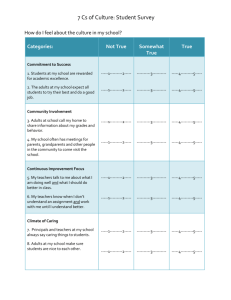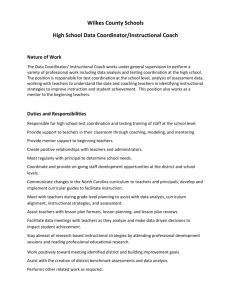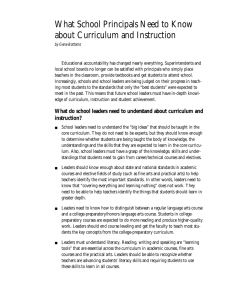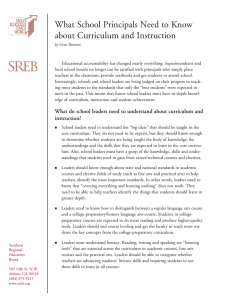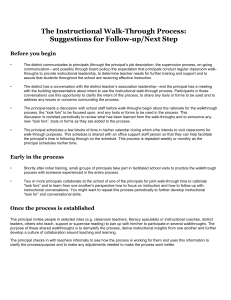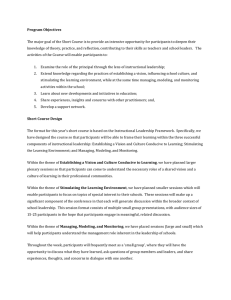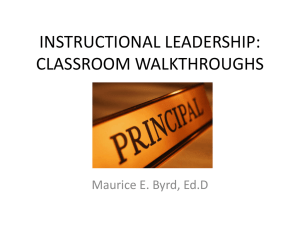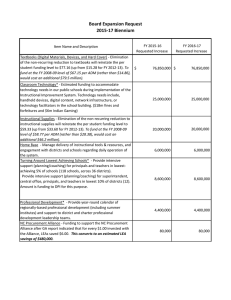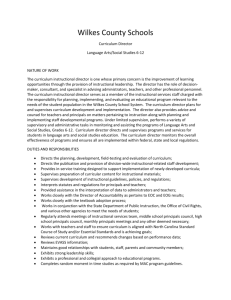How Leadership Influences Student Learning
advertisement
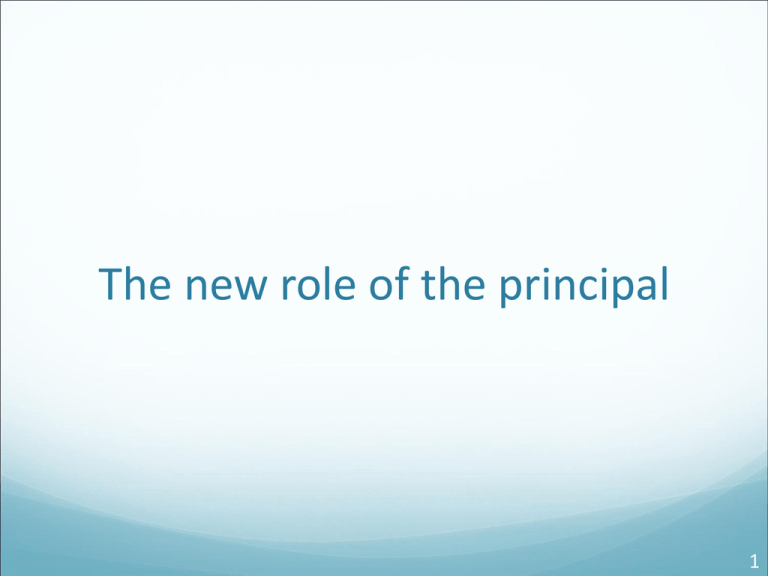
The new role of the principal 1 Leadership is key to improving teaching & learning “Leadership is second only to classroom instruction among all school related factors that contribute to what students learn at school.” -- How Leadership Influences Student Learning, Kenneth Leithwood, et al, University of Minnesota, University of Toronto, 2004 “Six years later we are even more confident about this claim.” -- Learning from Leadership: Investigating the Links to Improved Student Learning, Louis, et al, 2010 2 Leadership is crucial to making school reform succeed “There seems little doubt that both district and school leadership provides a critical bridge between most educational reform initiatives, and having those reforms make a genuine difference for all students.” -- How Leadership Influences Student Learning, 2004 3 Especially in difficult situations “…there are virtually no documented instances of troubled schools being turned around without intervention by a powerful leader.” -- How Leadership Influences Student Learning, 2004 4 Effective principals are key to retaining good teachers “It is the leader who both recruits and retains high quality staff. Indeed, the number one reason for teachers’ decisions about whether to stay in a school is the quality of administrative support – and it is the leader who must develop this organization.” -- Preparing School Leaders for a Changing World, Linda Darling-Hammond, et al, Stanford University, 2007 5 What effective principals do Shape a transformational vision of academic success for all students Create a hospitable climate Cultivate leadership in others Lead the leadership team Lead the professional learning community Manage people, data and processes All in the service of improving instruction Source: The School Principal as Leader: Guiding Schools to Better Teaching and Learning, January 2012 6 Key characteristics of successful principals Share decision-making Principals are most effective when they see themselves as working collaboratively towards clear, common goals with district personnel, other principals and teachers Sharing leadership increases credibility – doesn’t diminish it Lead school improvement by: Creating a common learning agenda among all staff Aligning resources with learning, needs & priorities Supporting teachers’ sense of self-efficacy Building external relations with parents and community Balancing clear expectations with fair accountability measures Providing strong instructional leadership 7 Instructional leadership is more complex than a simple phrase… Two key elements: Instructional climate – setting an ethos and tone Instructional action – steps taken by the leader High-performing schools have both elements Secondary schools are more likely to have deficits in instructional actions Developing high levels of professional community is the most direct means of improving instruction at all grade levels 8 Available at: www.wallacefoundation.org 9 Why the district role is important “Both our qualitative and quantitative evidence indicate that district priorities and actions have a measurable effect on professionals at the school level.” Leaders in higher performing districts communicated explicit expectations for principal leadership and provided learning experiences in line with these expectations They also monitored principal follow-through and intervened with further support where needed. - Wahlstrom, et al, Executive Summary of Research Findings, 2010 10
